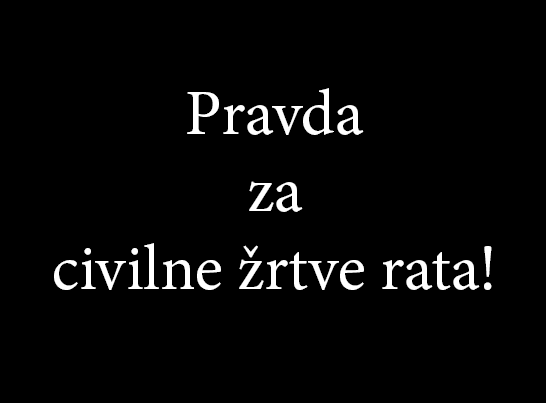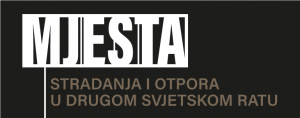Publications
A very important part of our activities is the production of publications and audiovisual materials covering different topics of the process of dealing with the past, as well as documenting pre-war, war and post-war events.
Publications in PDF are free for download. If you want to purchase printed editions, please contact our office.
Note: Please read The Terms and Conditions of Use before using Documenta’s materials.
Between Memory and Oblivion – Holocaust and other WWII Genocides in South Eastern Europe: marginalized and forgotten places of memory
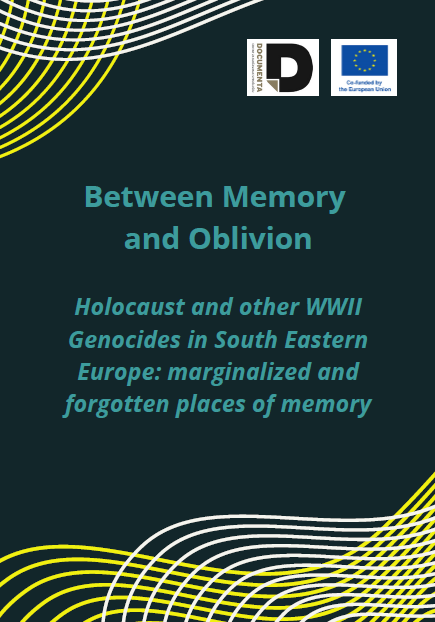
A collection of texts on history and memory of WWII, written by young researchers, PhD and master students. The publication has a twofold objective:
1) counteracting the instrumentalization of history to legitimize ethnic-national arguments in the present day
2) to make Southeastern European sites of mass crimes in the Second World War visible as transnational sites embodying the experience of the war and as transnational, European sites of memory.
This publication was prepared with the support of the European Union, through the CERV programme.
Documenta, Zagreb 2023
Download PDF (6,57 MB)
Between Memory and Oblivion – Handbook for WWII and Holocaust education
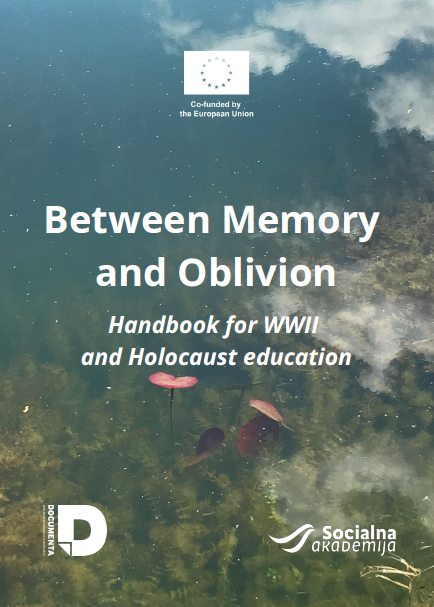
The handbook “Between memory and oblivion” offers a collection of methods from the field of non-formal education to help young people better understand the Holocaust and other WWII genocides.
All methods are designed to be implemented through a “peer-to-peer” and “hands-on” approach, through which young people take on the role of creators and interpreters of history, rather than just information consumers.
This publication was prepared with the support of the European Union, through the CERV programme.
Documenta, Zagreb 2023
Download PDF (9,45 MB)
Meeting Memories – Booklet
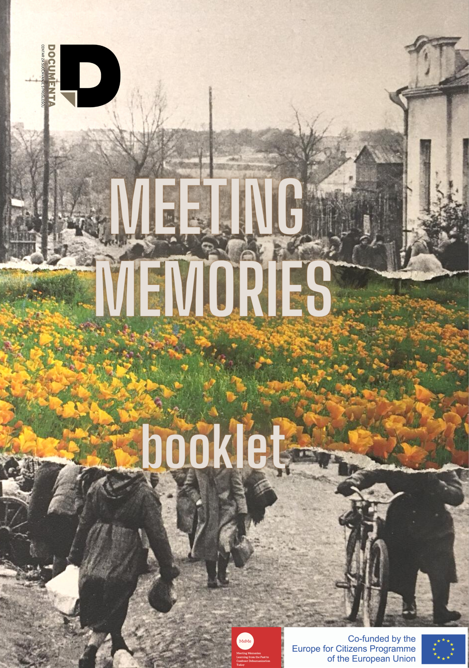
The project “Meeting Memories: Learning from the Past to Confront Dehumanization Today (MeMe)” wanted to remind European citizens of the politics of dehumanization and scapegoating happening during the 1930s and 1940s, and generate a reflection on similar patterns happening today.
Its activities have been an opportunity to raise public awareness, make citizens more resilient and critical towards authoritarianism and populism and less prone to racism and radicalization, as well as engage in confronting distortions of historical facts about the suffering in concentration camps during World War II through public events, exhibitions, and educational work.
In the booklet, you can find suggested methods and activities for youth and students, as well as suggestions and recommendations on the project’s topics.
The project was financed by the European Union through the Europe for Citizens programme.
Documenta, Zagreb 2023
Download PDF (18,9 MB)
The Antiwar Campaign 1991-2011. The Untold Story
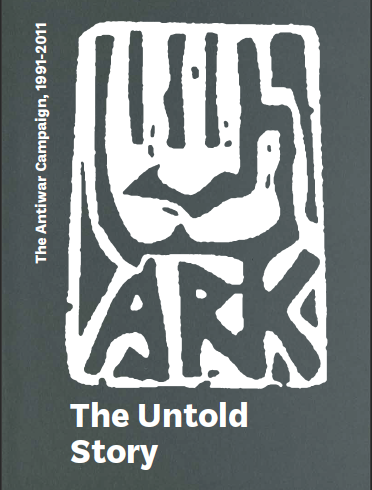
On the occasion of the twentieth anniversary of the founding of the Antiwar Campaign of Croatia, we edited and published this book with the aim of mapping the other, hidden and contested history of anti-war, women’s and human rights initiatives during the 1990s. Since we are aware of the scarcity of existing written traces about our activities, as well as the need for systematic research, we conceived it as a cross section of subjective and factual, personal memories and documentary material. In order to fulfill this task, we used different approaches in portraying the structure and development of Antiwar Campaign of Croatia, as well as the dispersion of its entire human, material and spiritual heritage.
Thanks to the translation work of Will Firth, one of the numerous collaborators of the Antiwar Campaign, we present this book in English, more than ten years after its original publication.
Documenta, Zagreb, 2022
Download PDF (9,3 MB)
WHY SO RADICAL?: Preventing youth radicalization through historic-civic education (Toolkit for youth workers)
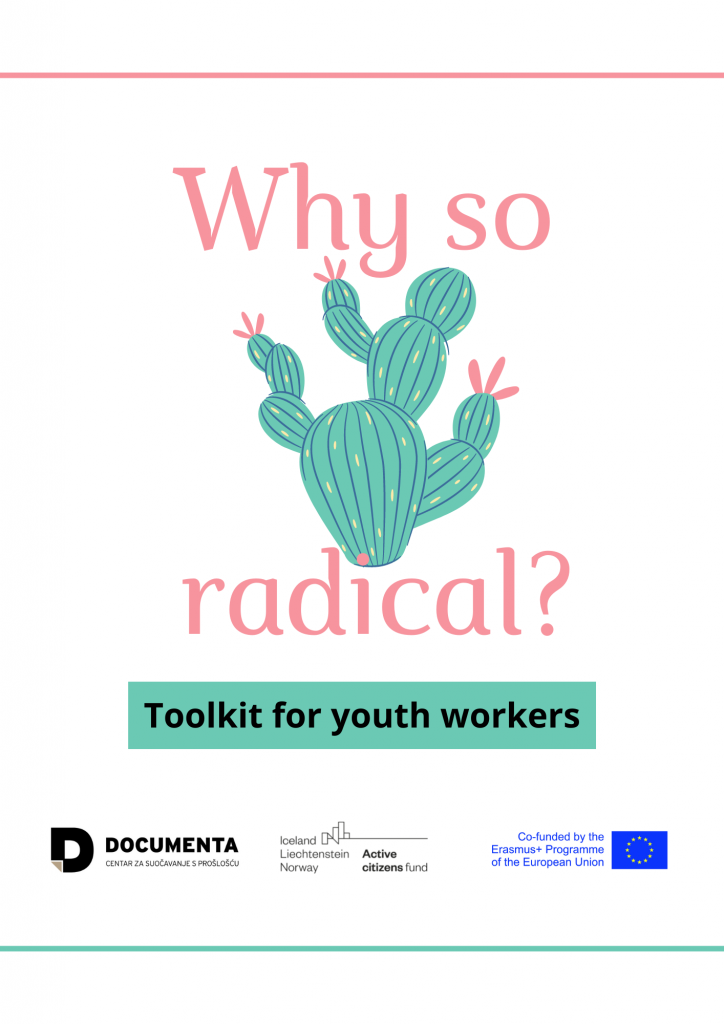
This online publication is the main result of the project “Why So Radical? Preventing youth radicalization through historic-civic education”. The project was financed by the European Union through the program Erasmus+ and Active Citizens Fund. Toolkit deals with the issue of growing radicalization among European youth.
The main activity of the project consisted in a training for youth workers, which took place in Vukovar, Croatia, from the 21st to the 27th of June, 2022. The toolkit collects the methods used during the training and are based in the practices of historic and civic education, focusing on how to support young people in understanding complex social and political processes and their connection to radicalization, how to improve their critical thinking and active learning skills, and how to better acquaint them with concepts such as multiperspectivity, tolerance, and dialogue.
Documenta, Zagreb, 2022
Download PDF (1,44 MB
BIOGRAPHIES OF RESISTANCE: meeting with the history of marginalized groups, between oppression and fight for human rights

The project “Biographies of resistance: meeting with the history of marginalized groups, between oppression and fight for human rights” was written and conducted by the team of the civic society organization Documenta – Centre for dealing with the past, based in Zagreb, Croatia, with the support of its partners: European Youth Center Břeclav (Czech Republic), United Societies of Balkans (Greece), Associazione TDM2000 (Italy), Youth Zone (Serbia), and Las Niñas del Tul (Spain). The project was co-funded by the Erasmus+ Program of the European Union.
The main aim of the project was to focus on the topic of the under-representation of marginalized groups in formal education, historical narratives, and public space. The groups considered included women, religious and national minorities, LGBTQ+, refugees, and migrants, as we believe that they have experienced a process of marginalization and underrepresentation in European culture of remembrance, which determined their exclusion from the narrations about our common past.
Documenta, Zagreb, 2021
Download PDF (28,6 MB)
A short guide through the history of the internment camp on Goli otok
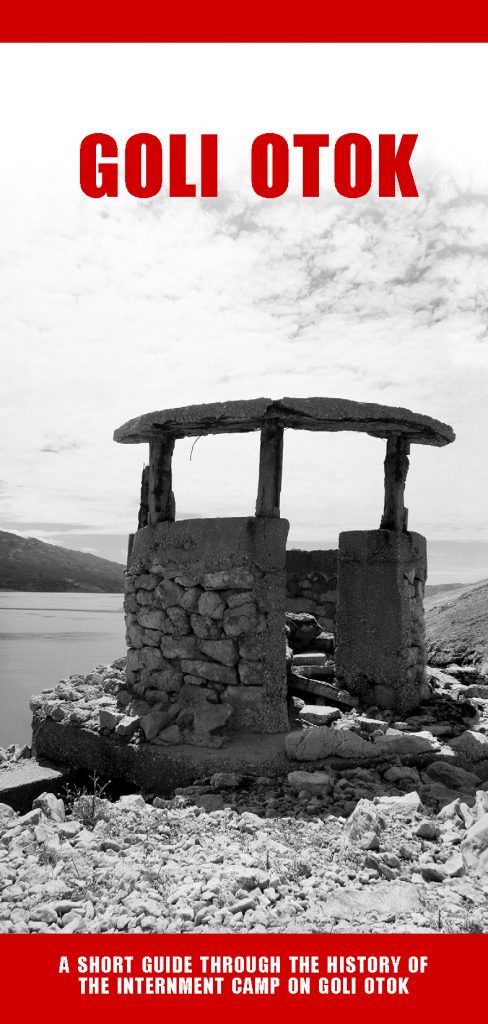
This brochure, created in cooperation with Dr. Martin Previšić, is a short introduction to the political history of Goli Otok, and a guide to the part of the island most frequently toured by visitors. Readers are presented with the results of Dr. Previšić’s years-long research in a plain and simple form, suitable for those with no previous knowledge of Goli Otok, or the political history of Croatia.
In addition to providing basic information about the prison camp, and prison, on Goli Otok, the aim of this brochure is to stimulate readers to think about ideologically motivated violence within the framework of various regimes that held sway on the territory of today’s Croatia. At the same time, we wish to stress the importance of safeguarding the human rights and freedoms of each individual, and encourage empathy with the victims of political and ideological violence.
ISBN: 978-953-7043-84-1
Documenta – Friedrich Ebert Foundation, Zagreb, 2020
Download PDF (7,2 MB)
Status and rights of victims of crime in Republic of Croatia
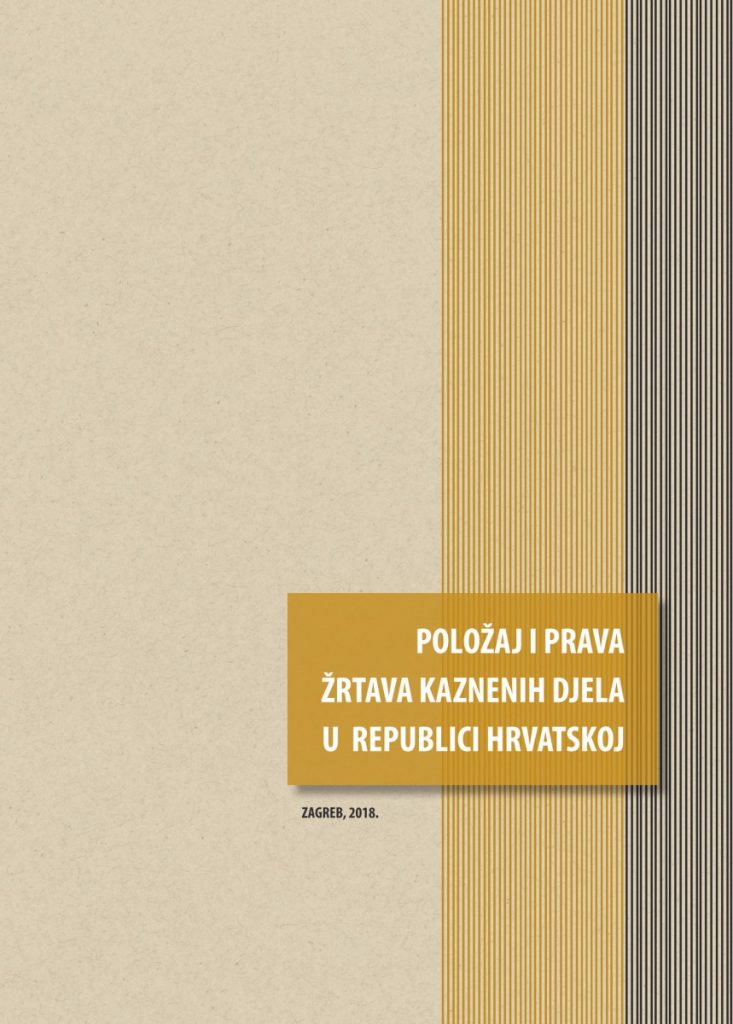
Documenta – Centre for dealing with the past, Center for peace and nonviolence from Osijek, White circle of Croatia from Split and Victim and witness support service from Vukovar have been implementing the project „Rights, support, protection and compensation to victims of crime“ for the purpose of contribution of the implementation of the Directive 2012/29/EU on the minimal standards of right, support and protection of victims of crime and the Directive 2004/80/EC on the compensation of victims of crime. Through interviews and meetings with victims of war crimes, hate crime, domestic violence and discrimination, we have come to the conclusion that there is still large number of victims who are not sufficiently informed about their rights, while the system of free legal aid has proved to be ineffective in practice, due to insufficient support from the state, as well as the unsustainability of existing mechanisms through the activities of CSOs and the unwillingness of attorneys to accept more complicated cases due to reduced fees for their work.
This report was realized within the Justice programme of EU, and co-financed by Office for cooperation with NGO-s of the Government of the Republic of Croatia and City of Zagreb. The content of the report is the sole responsibility of the publisher and under no circumstances can it be considered to reflect the attitude of the European Union, the Office for cooperation with NGO-s of the Government of the Republic of Croatia and the City of Zagreb.
Zagreb, 2018.
Download PDF (0,5 MB)
Research Report: Enhancing Missing Persons Strategy through Regional Cooperation
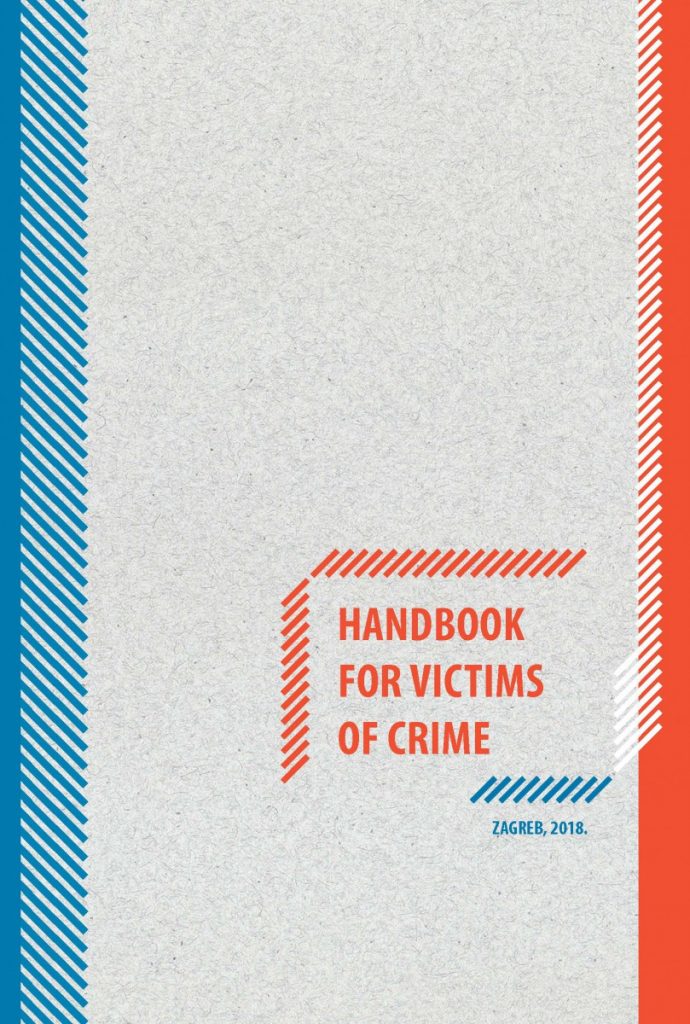
The research was carried out in the framework of the project Enhancing Missing Persons Strategy through Regional Cooperation, with the financial support of the European Fund for the Balkans, Think and Link – Regional Policy Programme 2017.
ISBN: 978-953-7872-18-2, Zagreb, 2018
Download PDF (Croatian) (1,39 MB)
Handbook for victims of crime

This handbook is intented for victims of crime, with the goal of making it easier for them to exercise their rights guaranteed by national laws. The handbook will help answer the questions: whom to contact, whom to ask for help and what rights they are entitled to.The first part of the handbook consists of general information useful for the victims of all crimes, regardless of the personal characteristics of the victim, while the second part deals more closely with the victims of certain crimes, which are recognized by law as particularly vulnerable. In that sense, the categories which were singled out are dealing with children as victims of crime, victims of crimes against sexual freedom and human trafficking, victims of hate crime, victims of terrorism, victims of crimes against humanity and international law, victims of property crimes and relatives of victims in criminal proceeding.
ISBN: 978-953-7872-17-5, Zagreb, 2018
Download PDF (Croatian) (3,8 MB)
Prosecuting War Crimes – Guarantee of the Process of Dealing with the Past and Sustainability of Judicial Reforms in Croatia*
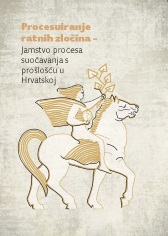
Book was written with intention to summarize general tendencies in the sphere of juridical practice concerning prosecuting war crimes committed on the territory of ex-Yugoslavia in the wars of 90-ies.
* English summaries of articles
Zagreb, 2014
Download PDF (English) (566 kB)
Research report Civilian war victims in Croatia
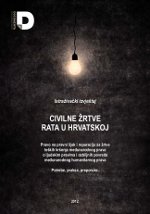
This handbook offers some of the possible practical answers concerning the challenge of how to deepen the discussion on the past in the polarized societies where the negation of crimes is an everyday experience. The handbook presents methods aimed at creating the support for documenting the facts, and recognizing the suffering and dignity of every victim.
*Abridged version in English
ISBN: 978-953-7872-05-2, Zagreb, 2012.
Download PDF (Croatian) (4 MB)
Working on Dealing with the Past. A Handbook for Civil Society Organizations*
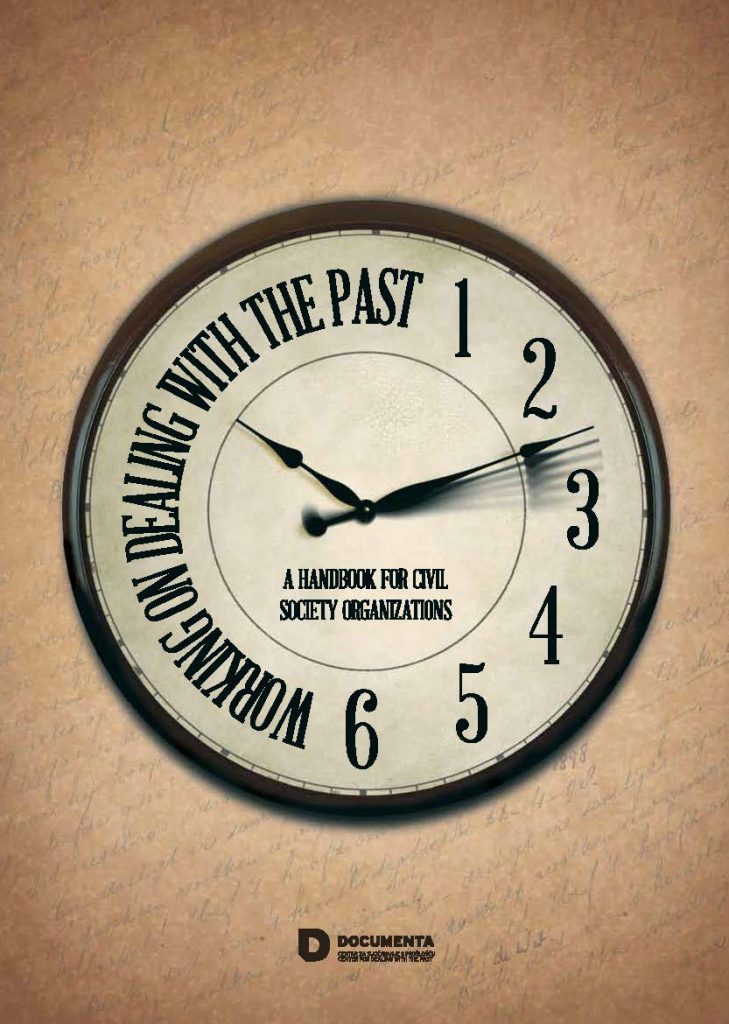
A right to a legal remedy and reparations for victims of serious violations of international law concerning human rights and severe violations of international humanitarian law. Requirements, practice, recommendations.
Research of position of civilian war victims in Croatia in relation to an international, national, legal and political context, was conducted in period from September 2011 to September 2012. The purpose of investigation was to identify needs of civilian war victims in relation to respective rights and obligations emerging from the international law and national institutional legal framework.
ISBN: 978-953-7872-04-5, Zagreb, 2012.
Download PDF (English) (4.1 MB)
State Administration Institutions of Republic of Croatia From Independence Until Joining the EU. Part I (1990-2004)
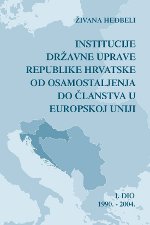
In cooperation with doc.dr.sc. Živana Heđbeli, Documenta initiated a research project on the development of state institutions of Republic of Croatia. This is first book in the series and encompasses institutions of political system such as Parliament, President, Government of Republic of Croatia and state administration bodies in period from 1990 to 2004, by identifying jurisdiction, functions, structural characteristics and providing relevant legislature.
ISBN: 978-953-7872-01-4, Zagreb, 2011
Download PDF (Croatian) (1.88 MB)
Antiwar Campaign 1991 – 2011. Untold History

In occasion of twentieth anniversary of establishment of Antiwar Campaign Croatia we edited and published book whose purpose was to map neglected and refuted history of antiwar, women and human rights initiatives during the 90’s. Being aware of the lack of existing traces of our activities, and the need for a systematic research, the book was conceptualized as intersection between subjective and factography, personal memories and documentary materials. In order to fulfill this mission, book was imagined to represent structure and development by using different methods, and to show dispersion of ARK human, material and immaterial legacy.
ISBN: 978-953-7872-00-7, Zagreb, 2011
Download PDF (Croatian) (9.49 MB)
War, documenting, and legal status of a victim
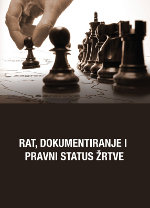
During the year 2006 and 2010 Documenta organized two public debates on practices and problems in documenting human losses in wars. This publication contains complete transcripts, conclusions and recommendations which are or will be of assistance in activates of systematic gathering of documentation regarding war activities and establishing facts. We believe this publication will provide significant contribution in this sense, an enhance public debate with aim of strengthening capacities and visibility of organizations and institutions engaged in similar projects, but also to improve and intensify documenting practices of all victims worldwide and advocating necessity of gathering facts on circumstances of war atrocities.
ISBN: 978-953-95433-8-7, Zagreb, 2011
Download PDF (Croatian) (816.39 KB)
Dealing With the Past in Croatia – Attitudes and Opinions of Actors and Public in Postwar Time
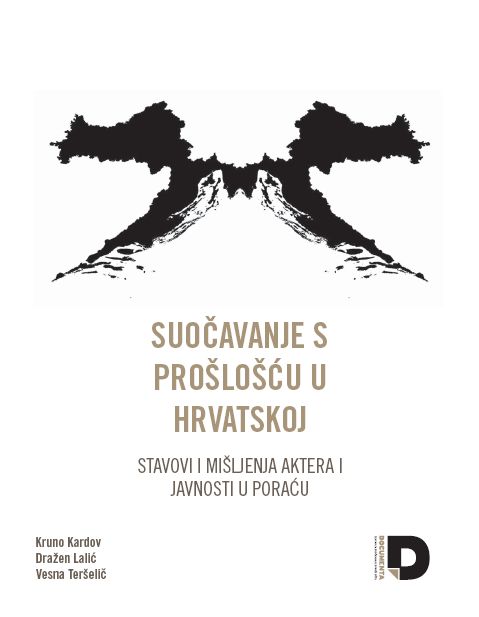
Primary goal of this scientific research is to gather information on attitudes and opinions of key actors (creators of public opinion, members of two largest ethnic groups, soldiers) and public on war crimes, processing war crimes, victims of war crimes and violence, support to survivors and other important aspects of dealing with the past.
ISBN: 978-953-95433-7-0, Zagreb, 2010
Download PDF (Croatian) (805.8 KB)
Evacuated From Pakračka Poljana
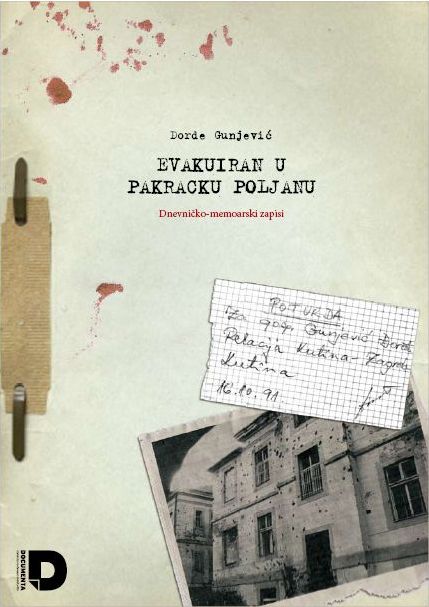
Memoirs of Đorđe Gunjević, war assistant of Government commissioner for Pakrac, in charge of health and social care, is a text that points to a destiny of individuals in turbulent times of Homeland war, but also to a destiny of a community. Gunjević’s memoirs are not just a book on personal fate. It also a story on how fragile a community can be in times of war, and even more, how it can be forced to dissolve.
ISBN: 978-953-95433-5-6, Zagreb, 2010
Download PDF (Croatian) (31.2 MB)
Remembering of War in Pakrac, Lipik and Nearby Places
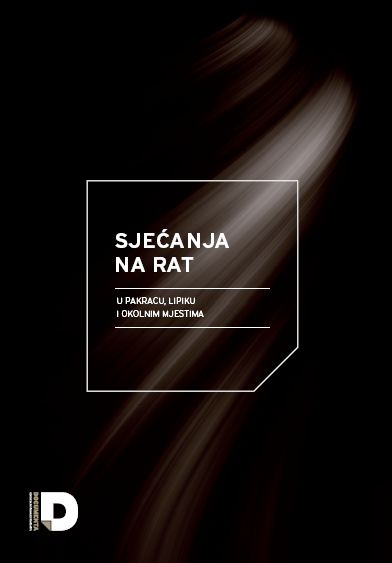
Publication Remembering of war in Pakrac, Lipik and nearby places, was created as result of Documenta’s efforts to record remembering of people who survived the war in the area of Pakrac, Lipik and nearby places. The goal was to record unwritten stories from not so far history, which will still occupy us, independently from our wishes. We believed that effort to reconstruct war activities on this area an transferring subjective experience of a people who weren’t holders of political power, neither creators of political history, will enable insight to a seemingly concealed aspects of life on a territory of Western Slavonia and deepen knowledge on the nature and origin of war conflict in the 90’s.
ISBN: 978-953-95433-6-3, Zagreb, 2010
Download PDF (Croatian) (2.8 MB)
Youngsters and the Past – Why Would I Care?
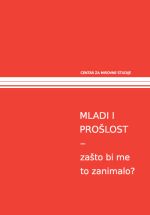
You must have listened personal stories on torments and suffering in war. Have you ever asked yourself why is there some much talk about generals and criminals, and so little about victims? Have you ever heard that some people still don’t have any information on whereabouts of their sisters, brothers, fathers and mothers? Have you ever met your coevals from Belgrade, Sarajevo or Podgorica? Maybe you have fallen in love with girl or boy from Banja Luka or Ljubljana? This publication addresses these topics. It was written by youngsters of your age who are thinking about these problems and understand they are not guilty for committed crimes, but they do take responsibility in conceiving them. They take responsibility for the future. They ask for the establishment of facts and putting end to manipulation with victims.
ISBN: 978-953-772901-1 Zagreb, 2010
Download PDF (Croatian) (2.2 MB)
Consultative Process on Initiative for Establishing RECOM
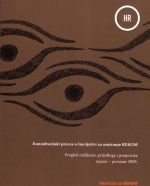
Publication contains accents and conclusions from 34 public events (consultations) on Initiative for RECOM held in all successor states of former Yugoslavia. Consultations have been held in the period from July to December 2009 with different social groups: local communities, victims’ associations, young people, intellectuals, journalists, women organizations, religious communities, soldiers, civil society organizations and detainees.
ISBN: 978-953-95433-4-9, Beograd, 2010
Download PDF (Croatian) (1.51 MB)
Consultative Process on Initiative for Establishing RECOM
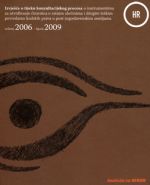
Report on course of consultation process on instruments for determining facts on war crimes and other serious violations of human rights in post-Yugoslav states, held between May 2006 and June 2009.
ISBN: 978-953-95433-3-2, Beograd, 2009
Download PDF (Croatian) (1.28 MB)
One history, several histories - Addendum to Textbook with a publishing chronics
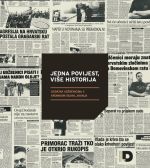
We decided to publish Addendum to Textbook for newer History in order to contribute to public dialogue on important questions of representation and education on recent wars, and put attention to all the difficulties of writing history down, as the wholeness of past events in history and historiography. Publication was named One history [povijest], several histories [historija], because chaotic history with a multiplicity of meanings and layers we all witnessed to, goes hand in hand with more histories in which we are constantly storytelling what exactly happened to us.
ISBN: 978-953-95433-1-8, Zagreb, 2007
Download PDF (Croatian) (35.1 MB)
What and How With Civil Society Organizations’ ‘Papers’
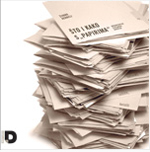
Well organized and archived documentation is necessary for a clear overview inside the organization, so its members could conceive it as its own. Many are so overloaded with papers; they just don’t know where to start. This manual is conceptualized in a realistic manner, having in mind exactly this kind of situation, so it offers a way to organize something seemingly close to chaos to a vivid and organized archive. To protect what is important, and to discard pure ballast, and in doing so, acquire maximal information value of material in possession.
ISBN: 978-953-95433-2-5, Zagreb, 2008
Download PDF (Croatian) (1.74 MB)
Transitional justice in states of ex-Yugoslavia, Report for 2007
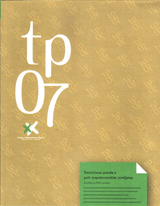
This report is result of systematic monitoring of introducing and establishing transitional justice mechanisms in countries emerged by dissolvement of Yugoslavia, which is conducted by human rights organizations Humanitarian Law Fond (Belgrade) and Documenta (Zagreb).
ISBN: 978-86-7932-016-2, Beograd, 2008
Download PDF (Croatian) (927.62 KB)
The Records of NGOs, Memory... To Be Shared. A Practical Guide in 60 Questions
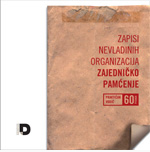
This publication is translation from English version of guide The Records of NGOs, Memory… To Be Shared. A Practical Guide in 60 Questions. Joan van Albada, general secretary of International Council on Archives granted Documenta permission to translate guide in Croatian on December 23th 2005. Publication is not literal translation of the original version but is has been partially modified in accordance with context of administration practices and relevant legislature in Republic of Croatia.
ISBN: 978-953-95433-0-4, Zagreb, 2006.
Download PDF (Croatian) (618 KB)
Transitional justice in states of ex-Yugoslavia, Report for 2006
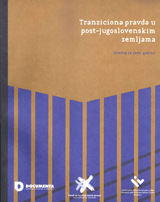
This report addresses dealing with consequences of war and crimes committed in period from 1991 to 1999. Report was made on initiative of Humanitarian Law Fund (Belgrade) in cooperation with Research and Documentation Centre (Sarajevo) and Documenta (Zagreb). The report relates to BiH, Croatia, Serbia, Kosovo and Montenegro.
ISBN: 978-86-7932-016-2, Beograd, 2007
Download PDF (Croatian) (1.1 MB)


